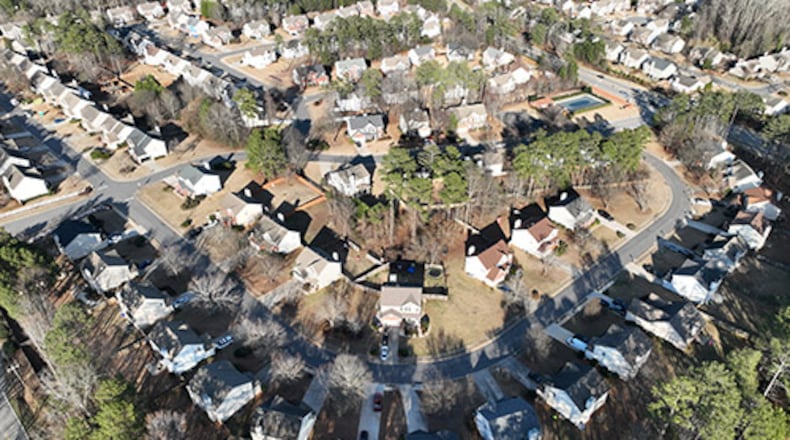A Georgia House committee this week narrowly approved a measure to stop local governments from blocking housing construction in perpetuity.
But few other efforts to alleviate Georgia’s housing crunch appeared likely to advance ahead of a key legislative deadline.
The proposal emerged from a fall study committee on housing affordability in Georgia, which blamed local government regulations for driving up the cost of housing and impeding the construction of homes.
Metro Atlanta in particular faces a generational supply crunch that has driven up home prices and rents far faster than family incomes. Over the next year, builders would need to add 72,400 new homes here to keep up with demand. But only 13,000 are projected to be built in that time, according to the study committee’s final report.
Local governments have wide powers to influence how, where and what kinds of homes are built in their communities, through the planning and zoning and their control of building permits.
House Bill 514, a bipartisan measure sponsored by Rep. Dale Washburn, R-Macon, would target what builders see as one of the most egregious uses of that power: blanket development moratoriums that some cities and counties have used to block construction entirely for months on end.
“We are talking about a shortage of housing in Georgia,” Washburn told the House Governmental Affairs Committee. “I don’t believe it should be allowed for a local government to just stop construction and say, ‘well we don’t need any more people here.’
“Our people have to have a place to live.”
The bill, which passed 12 to 6, would limit local moratoriums on residential development to 180 days. It would also prevent governments from extending them in most situations. Lobbyists for Georgia cities and counties dropped their opposition to the bill this week after Washburn agreed to add exceptions for things like emergencies and ongoing studies.
“We don’t think moratoriums should go on forever, but there are legitimate reasons sometimes when moratoriums might need to continue,” said Jim Thornton, a lobbyist for the Georgia Municipal Association.
Local government officials use moratoriums to push pause on development in order to study their effect on public services or rewrite regulations. But at times such moratoriums have been extended repeatedly, effectively freezing developers’ properties in limbo with no clear resolution in sight.
The bill would only apply to single-family neighborhoods, which could limit its effectiveness in increasing housing supply. Moratoriums on apartments and duplexes, like the yearlong construction ban instituted earlier this year in Henry County, would not be affected.
A separate Washburn proposal, House Bill 517, which would pre-empt many local building design standards and large lot size requirements, faced a chillier reception at a subcommittee hearing earlier this week.
Homebuilders say local zoning and design standards drive up the cost of housing, forcing developers to build luxurious homes on lots that are larger than many families need, and more expensive than most can afford.
But local government officials blasted the proposal as an all-out assault by the state on local control of their communities, saying it could open the floodgates to cheap construction materials that won’t stand the test of time.
College Park Mayor Bianca Motley Broom said her city spent 20 years acquiring land and developing housing design standards for Six West, a 311-acre mixed-use development near the airport. If the bill passes, those standards, which include things like prohibiting less durable roofing materials, would be out the window.
Future homeowners would be stuck with the bill when more frequent repairs are needed, she said.
“We are building this community to last. We are building a community that we deserve,” Motley Broom said. “House Bill 517 takes that away from us.”
The bill has not been scheduled for a committee vote needed to advance to the House floor, and its prospects are dimming. Crossover Day, the General Assembly’s internal deadline for bills to clear at least one chamber and advance for further consideration, is Monday. But proposals that miss the deadline can still resurface as amendments to other bills.
About the Author
Keep Reading
The Latest
Featured




